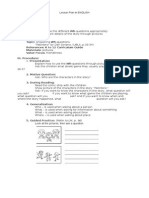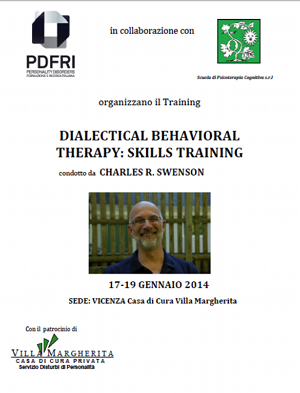02dialectical Behavioral Training Certification
A dialectic is a synthesis or integration of opposites. In DBT, dialectical strategies help both the therapist and the client get unstuck from extreme positions. In this video, learn how dialectical strategies keep the therapy in balance and help clients reach their ultimate goals as quickly as possible. Dialectical Behavior Therapy Skills Training for Children and Adolescents: Rescuing the Dysregulated Child Dialectical Behavior Therapy (DBT) is one of the fastest growing approaches — because it works! It harnesses the power of CBT and mindfulness in a strategic way that gets results. Dialectical Behavior Therapy (DBT) is a type of cognitive-behavioral therapy that focuses on the psychosocial aspects of therapy, emphasizing the importance of a collaborative relationship, support for the client, and the development of skills for dealing with. Of the British Isles DBT Training Team. Heard is a senior trainer for BehavioralTech, USA and an international consultant and supervisor in Dialectical Behaviour Therapy. She has written extensively about DBT and borderline personality disorder. Dialectical Behavior Therapy is an innovative method of treatment that has been developed specifically to meet the needs and address the changes faced by individuals with mood and behavior issues.
This group therapy is for clients that may be struggling with any of the following:
- Poor self-esteem
- Excessive Worry
- Impulsivity
- Unbearable Emotional Pain
- Overwhelming Feelings
- Self-destructive Behaviors
- Self-injurious Behaviors
- Chaotic/ Stormy Relationships
- Poor Boundaries
- Drug or Alcohol Abuse
- All or Nothing Thinking
- Confusion About Self

Dialectical Behavioral Therapy (DBT) is a structured therapeutic treatment based from Zen Mindfulness practice placing emphasis on the balance between acceptance and change. Outcomes of this class will provide DBT clients with tools to recognize and increase awareness of thoughts, feelings, and body sensations while strengthening attention to the present moment in order to respond with healthy strategies to maintain control, cultivate living life from a place of “wise mind,” gain interpersonal skills to improve relationships, and begin building a life worth living.

Our Dialectical Behavioral Therapy (DBT): Skills Training Group will provide a validating and safe environment for clients to learn coping skills to manage stress they encounter in life. Dialectical Behavioral Therapy teaches skills that help reduce the intensity and frequency of overwhelming emotions, while also offering guidance for navigating these distressing emotional moments. DBT skills include:

Mindfulness—Mindfulness is a core concept within DBT that promotes full awareness of your present moment (i.e. thoughts, feelings and physical sensations) without judgment and without trying to change it. Mindfulness strives to focus the mind, direct attention and achieve a better understanding of feelings.
Dialectical Behavioral Therapy For Children
Emotional Regulation—Emotional Regulation concentrates on taking control of emotions. Difficulty controlling extreme emotions can lead to impulsive or ineffective behaviors. The goals of Emotion Regulation are to better understand the emotions you experience, reduce emotional vulnerability and decrease emotional suffering.
Distress Tolerance—Pain is a part of life and being unable to deal with pain may lead to impulsive or destructive behavior. The goal of Distress Tolerance is to help people better cope with painful or distressing moments in more effective ways that won’t make the situation worse.
Interpersonal Effectiveness—The focus of Interpersonal Effectiveness is building and maintaining positive relationships. This module introduces tools to express beliefs and needs, set limits and negotiate solutions to problems without threatening relationships with others. Interpersonal Effectiveness skills can help in taking care of relationships, balancing your needs with the demands and needs of others, balancing things you want to do with things you ought to do and building/developing mastery of self and self-respect.
The group will be led by Elyssa Reid Ed.S., LPC, CRC, NCC and Scott Leenan M.S., LPC, CRC. Once enrolled in the program, clients who do not have a DBT therapist may be assigned a clinician to meet with once per week. The fee for the group is $125 per week. Space is limited to 10 participants so please register as soon as possible to ensure your space. For more information, you may contact us at Intown Counseling and Wellness at 404-478-9890 or e-mail us at admin@intowncounseling.com


Comments are closed.